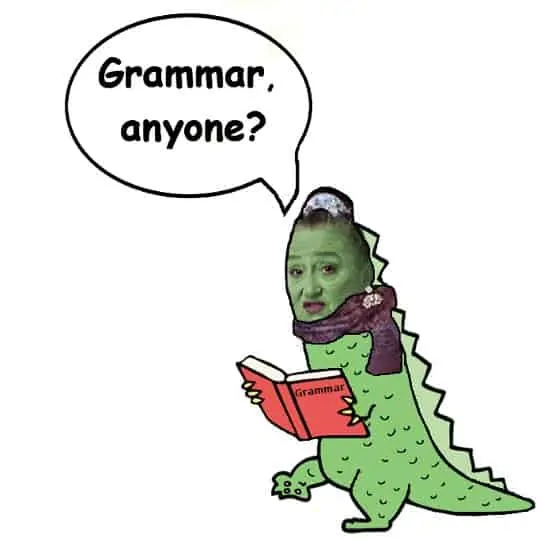
We recently saw that we can make our writing more interesting by changing the order of the subjects and predicates in our sentences.
If you've signed up after the last newsletter went out, you can read that newsletter and watch the free excerpt here.
Today, in turn, we wanted to share an excerpt that clarifies what, exactly, subjects and predicates are. Take a peek by clicking below!
The terms "subject" and "predicate" may seem rather technical at first. We don't normally talk about predicates in day-to-day life!
But Marie believed, and I believe with her, that terms like these can be deeply useful in coming to understand how sentences really work.
Subjects, Predicates, and the Architecture of Meaning
As I say in the introduction to The Basic Cozy Grammar Course, knowledge of grammar teaches us the secret architecture of phrases and sentences, which is also the secret architecture of meaning and sense. (Click here to see a video clip on YouTube.)
And at the foundation of this architecture is the person, place, or thing that does the action in a sentence, and the action that this person, place, or thing does.
Let's look at a simple example:
Marie believed.
Here we can ask: Who or what is doing the action of the sentence?
The answer is Marie. Therefore, Marie is the subject.
Then we can ask: What did the subject do?
In this case, what Marie did was believe. Therefore, believed is the predicate.
No one fails if they have the tools.
"Marie believed," of course, is a very simple example. However, it is by looking at simpler examples that we can learn to see the structure of more complicated examples.
For instance, take a look at this longer but related sentence:
Marie believed that no one fails if they have the tools.
Even though this is a more complicated sentence, we can still find the subject and the predicate by asking the same questions.
Who or what is doing the action of the sentence?
The answer is Marie. Therefore, Marie is the subject.
What did Marie do? She believed that no one fails if they have the tools.
Therefore, believed that no one fails if they have the tools is the predicate.
Terms like Subjects and Predicates are Tools of Meaning
Colleagues used to make Marie feel like an old dinosaur because she insisted on teaching grammar even when grammar had fallen out of fashion.
She always found it curious that the people who usually made this criticism often held master's degrees and already knew grammar themselves.
That's why she persisted and would later be vindicated for helping students gain the tools to help them speak and write with clarity, ease, and elegance.
Among those tools were terms like "subject" and "predicate," some of the most important building blocks of meaning.
You can learn more about Marie and how she won over her colleagues by reading this excerpt from the Preface of The Basic Cozy Grammar Course.

Thanks for joining us.
If you know anyone who would be interested in free excerpts and grammar tips from Marie and myself, please feel free to let them know about our newsletter.
See you again soon!

